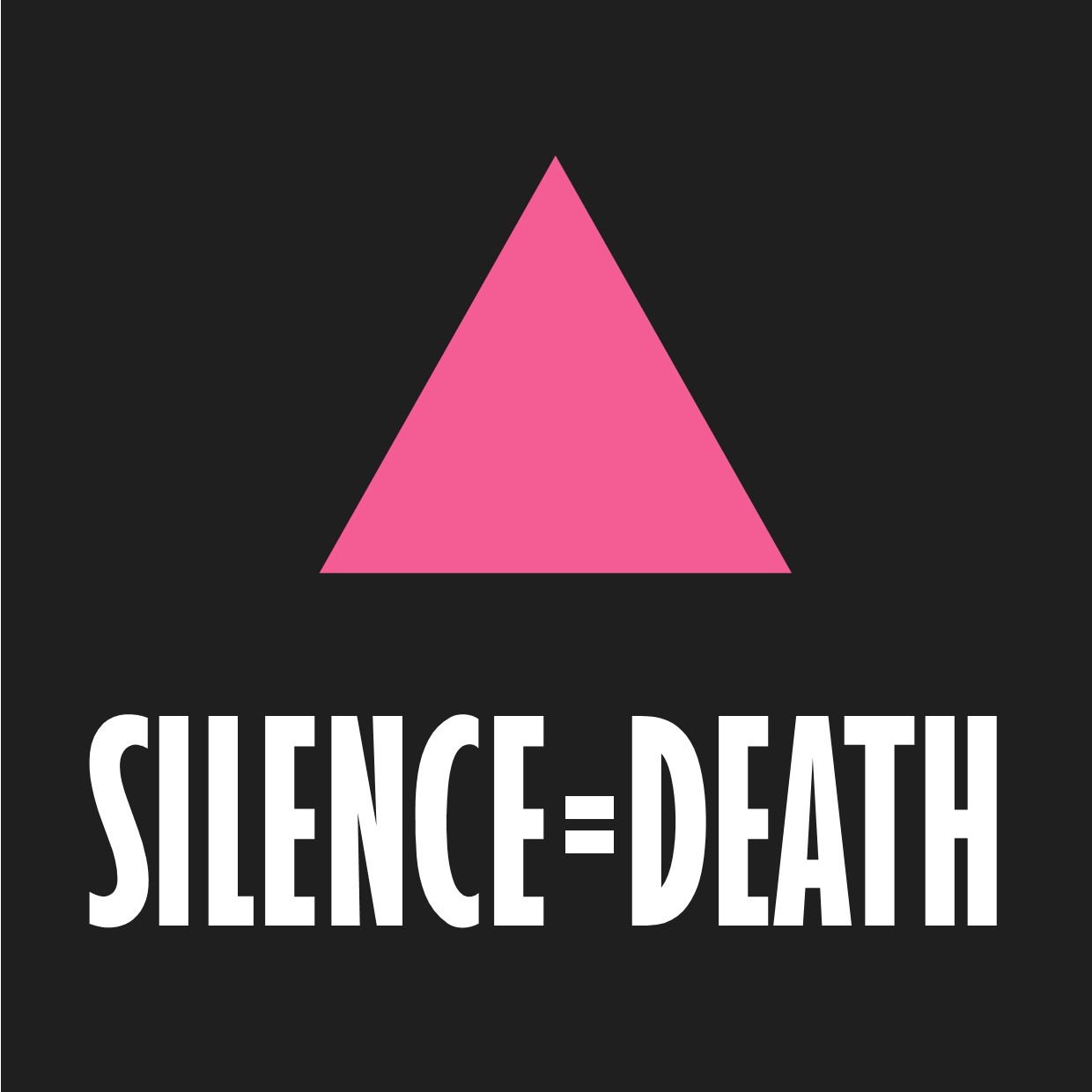In 1986, a support and conscious raising group of six gay men affected by the AIDS crisis began meeting in New York City. Inspired by posters made by the Art Workers Coalition and the Guerrilla Girls, their discussions led to the creation of the “Silence = Death” poster to mobilise the LGBT+ community into action.
They decided against a photographic image (as exclusionary) using a more abstract image to reach wider audiences. The design featured the pink triangle used to identify homosexuals in Holocaust concentration camps during World War II (1938-1945). The triangle was inverted and the pink was change to fuchsia colour (the brightest pink-purple). The poster became the key symbol of ACT UP, the AIDS activist organisation, which emerged in 1987.
Below, you can watch Avram Finkelstein talk about the Silence=Death Project or read the transcript. It will resonate if you are involved or affected, personally or professionally, by chemsex.
Silence=Death Project | WikipediaAvram Finkelstein: Silence=Death | SilenceOpensDoors | 4 Mar 2010 | 5m 22s
Avram Finkelstein, a member of the Silence=Death Project, talks about AIDS, ACT-UP, institutional silence, Holocaust imagery, street art, and the making of an iconic political image
I formed a small consciousness raising group with some friends of mine and it was a group of six gay men and we really wanted a place to talk about being gay in the age of AIDS but I’m talking about 1985. We worked for 9 months on this poster and we studied every aspect of every turn of phrase.
We argued about the color the exact color of the pink on the triangle … every single aspect of it had meaning and was packed with meaning for us. It was partly speaking with the voice of authority and appropriating authoritative space and advertising vernaculars but it was also speaking very directly to a lesbian and gay audience at the same time. In terms of the meaning of silence … politically it has it has two very specific meanings: institutionally silence is about control, personally silence is about complicity and I think as a Jew and there were three of us were Jews … this was tremendously disturbing to us because to a Jew when you’re when you see something happening and you’re silent about it, you’re participating in it whether you want to or not whether you know it or not.
There were support groups there were some political activity … they were service organisations … but Act Up hadn’t come along … so there was really there wasn’t really a place to talk about certain issues … so we met every week we had you know we structured it like a potluck and we started out you know talking about fears of sex … you know boyfriends … loneliness … but every week we would end up talking about politics. Every single week it would go back to institutional homophobia … access issues … racism … we always ended up there.
In particular we were very clued in to the idea that there was a politic going on that there was a political context which no one was talking about at the time and that really was the jumping off point for the poster. There were a couple of articles written about … you know Buckley called for tattooing of HIV positives that created a stir but there wasn’t really any voice there was no response. So it was silent on all these different levels politically … from a community perspective … and dialogue was what was missing … there was a lot of press reports people talking at you but there was very little dialogue.
Almost any conversation that involves descent eventually will be neutralised institutionally in America in particular. The way that it works is … you start out as a dissenting voice and gradually … the ear of power is given to you and then you’re invited to the table … and then you’re part of the power structure. There’s a very clear neutral neutralisation that happens in America in particular with regard to descent. Capitalism is very seductive … and the problem is … if I had to do it all over again that particular poster … I don’t know that I would have changed anything but I might have tried to accommodate for this fact: When you appropriate the voice of authority you begin to hear yourself in that way you begin to believe that voice and sometimes you can lose your own I’m not saying that I didn’t see this coming but I think a lot of activists in Act Up didn’t … they were naive to the power differentials to the dynamic to the way that capitalism neutralises descent and I think that was part of the problem … that is part of the stasis the silence that exists today is that people really did believe that everything was going to then be OK … that we had made these strides … we had managed to be heard … we had done something that was efficacious and that everything was going to be OK.
The thing to bear in mind about the repression of descent … or the repression of conversation … or the institutionalisation of silence … if you if you want to think about it that way … is it never goes away. It didn’t go away during that moment it appeared to people who felt empowered by hearing their voice but it never goes away and it’s a constant struggle.
